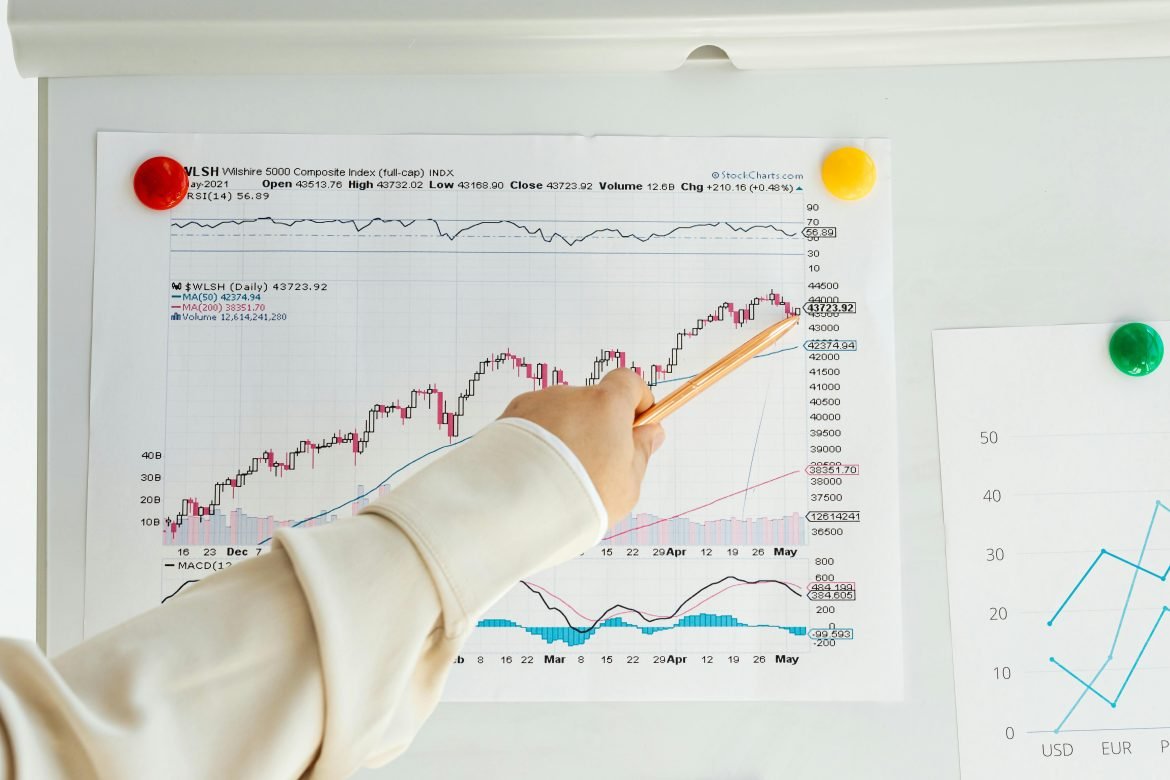In 2024, Arc Finance’s share price will likely be influenced by a multitude of factors ranging from global economic conditions to company-specific developments. Understanding these key factors is essential for investors looking to make informed decisions. This article delves into the most critical elements that could shape the trajectory of Arc Finance’s stock in the coming year.
1. Global Economic Environment
1.1. Impact of Global Economic Growth
The global economic environment plays a pivotal role in determining the share price of companies like Arc Finance. In 2024, the overall health of the global economy will influence investor sentiment, capital flows, and ultimately, the share price. Strong economic growth can lead to increased investor confidence, resulting in higher demand for stocks, including those of Arc Finance. Conversely, economic downturns or recessions can dampen investor enthusiasm and negatively affect share prices.
1.2. Interest Rate Trends
Interest rates are another significant factor that can impact Arc Finance’s share price. Central banks worldwide, such as the Federal Reserve in the United States or the European Central Bank, set interest rates that influence borrowing costs and investment decisions. In a low-interest-rate environment, investors may seek higher returns in the stock market, benefiting companies like Arc Finance. However, if interest rates rise, the cost of borrowing increases, potentially reducing corporate profits and making fixed-income securities more attractive than equities.
1.3. Currency Fluctuations
Currency exchange rates can also have a profound impact on Arc Finance’s share price, particularly if the company operates internationally. Fluctuations in foreign exchange rates can affect the company’s revenue and profitability when converting earnings from other currencies back to its reporting currency. A strong domestic currency could reduce foreign earnings, while a weaker domestic currency could enhance them.
2. Industry-Specific Factors
2.1. Regulatory Environment
The regulatory landscape in which Arc Finance operates is crucial for its performance in 2024. Changes in financial regulations, tax policies, and compliance requirements can either facilitate or hinder the company’s operations. For instance, stringent regulations could increase operational costs, while deregulation might create new growth opportunities. Investors should keep a close watch on any regulatory changes that could impact Arc Finance’s bottom line.
2.2. Competitive Landscape
The financial services industry is highly competitive, and Arc Finance must continually innovate to stay ahead. In 2024, the competitive landscape could intensify with the entry of new players, advancements in technology, or shifts in consumer preferences. A company that fails to adapt to these changes may see its market share decline, negatively affecting its stock price. Conversely, a strong competitive position could drive growth and enhance shareholder value.
2.3. Technological Advancements
Technological innovation is a double-edged sword for companies in the financial sector. On one hand, advancements in technology can lead to greater efficiency, cost savings, and new revenue streams. On the other hand, companies that are slow to adopt new technologies risk becoming obsolete. In 2024, Arc Finance’s ability to leverage emerging technologies such as blockchain, artificial intelligence, and fintech solutions will be crucial in determining its competitive edge and, by extension, its share price.
3. Company-Specific Factors
3.1. Financial Performance
Arc Finance’s financial performance will be a primary driver of its share price in 2024. Key financial metrics such as revenue growth, profit margins, return on equity, and earnings per share (EPS) are closely monitored by investors and analysts. Strong financial results can boost investor confidence, leading to a higher share price. Conversely, disappointing financial performance can lead to a decline in the stock’s value.
3.1.1. Earnings Reports and Guidance
Earnings reports and forward guidance are particularly influential in shaping market expectations. Arc Finance’s quarterly earnings releases provide insight into the company’s financial health and prospects. Positive earnings surprises, where actual results exceed analyst expectations, can drive the share price upward. Conversely, negative surprises can lead to sharp declines in stock value.
3.2. Management Decisions
The decisions made by Arc Finance’s management team will also significantly influence the company’s share price. Strategic initiatives such as mergers and acquisitions, capital investments, cost-cutting measures, and product development can all impact the company’s growth trajectory and profitability. Investors often look for signs of strong leadership and sound decision-making as indicators of future success.
3.2.1. Leadership Changes
Changes in the leadership team, particularly at the CEO or CFO level, can have an immediate impact on investor sentiment and the share price. A new CEO with a strong track record may be seen as a positive development, while uncertainty surrounding leadership changes could create volatility.
3.3. Dividend Policy
Arc Finance’s dividend policy is another important factor that can influence its share price. Dividends are a key component of total shareholder return, and changes in the dividend payout can signal the company’s financial health and prospects. An increase in dividends may be viewed positively by investors, while a dividend cut could lead to a decline in share price. Investors often seek companies with stable and growing dividends, as they provide a reliable income stream and indicate financial stability.
3.4. Share Buybacks
Share buybacks are another tool that Arc Finance might use to influence its share price. By repurchasing its shares, the company can reduce the number of outstanding shares, thereby increasing the earnings per share (EPS) and potentially driving up the share price. Buybacks are often seen as a sign that the company believes its stock is undervalued, which can boost investor confidence.
4. External Market Sentiment
4.1. Investor Sentiment
Investor sentiment is a powerful force that can drive stock prices in the short term. Market participants’ perceptions of Arc Finance’s prospects, influenced by news, rumours, and analyst reports, can lead to significant price movements. In 2024, a positive shift in investor sentiment could result in a rally in Arc Finance’s stock, while negative sentiment could lead to a sell-off.
4.2. Market Trends
Broader market trends, such as shifts from growth to value investing or vice versa, can also impact Arc Finance’s share price. If investors favour financial stocks, Arc Finance could see increased demand for its shares. Conversely, if the market trends toward sectors like technology or healthcare, financial stocks might underperform.
4.3. Geopolitical Events
Geopolitical events, such as elections, trade wars, or conflicts, can create uncertainty in the markets and impact Arc Finance’s share price. For example, trade tensions between major economies could disrupt global financial markets, affecting investor confidence and leading to increased volatility. Investors should be aware of the potential for geopolitical risks to influence the company’s stock.
5. ESG Considerations
5.1. Environmental Factors
Environmental, Social, and Governance (ESG) factors are increasingly important to investors and can influence Arc Finance’s share price. Companies that demonstrate strong environmental stewardship may attract investment from ESG-focused funds, boosting their share price. Conversely, poor environmental practices could lead to reputational damage and a decline in stock value.
5.2. Social Responsibility
Arc Finance’s approach to social responsibility, including its labour practices, community engagement, and diversity initiatives, can also impact its share price. Companies that prioritize social responsibility may benefit from enhanced brand loyalty and a positive public image, which can translate into better financial performance.
5.3. Governance Standards
Good corporate governance is essential for maintaining investor confidence. Arc Finance’s governance practices, including board diversity, executive compensation, and shareholder rights, will be closely scrutinized by investors. Strong governance can lead to better decision-making and improved financial results, positively impacting the share price.
Conclusion
In 2024, Arc Finance’s share price will be shaped by a complex interplay of global economic conditions, industry-specific factors, company performance, market sentiment, and ESG considerations. Investors need to consider all of these elements to make informed decisions about their investments in Arc Finance. By staying attuned to these key factors, investors can better anticipate potential changes in the company’s stock price and position themselves to capitalize on future opportunities.

